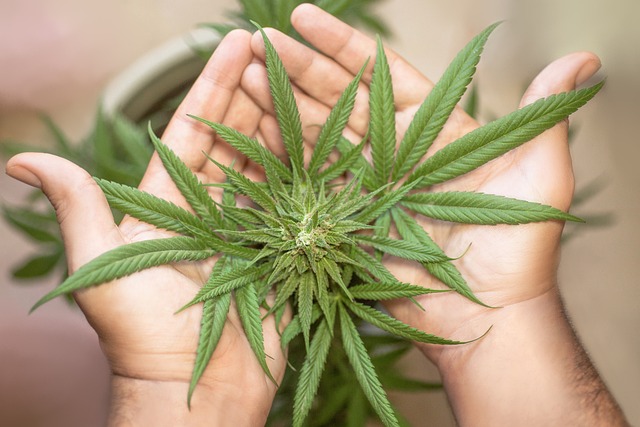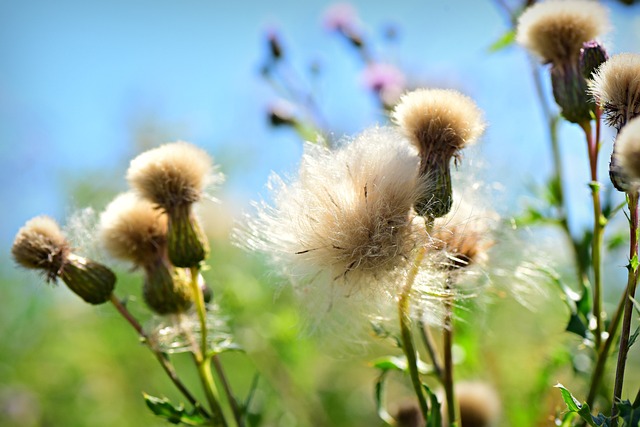THCA (tetrahydrocannabinolic acid), a non-psychoactive cannabinoid with therapeutic properties, is gaining attention for its anti-inflammatory, neuroprotective, and potential anti-cancer effects. However, it's important to be aware of the legal status of THCA, particularly in states like Idaho, where all forms of cannabis, including THCA, are illegal under state law due to their classification as cannabis derivatives. The legal landscape for THCA is complex and varies by region, with some areas beginning to recognize its potential benefits. In Idaho, despite growing interest in its therapeutic uses, THCA remains strictly controlled by law. Individuals interested in the health implications of THCA should stay informed about the evolving regulations surrounding cannabis products across the United States, always ensuring they comply with state and federal laws. As research continues to shed light on THCA's benefits for pain, nausea, oxidative stress, and possibly cancer, there is a growing advocate base that supports its use as a natural supplement for improving wellbeing. This interest reflects a broader movement towards cannabinoid therapy, which could potentially complement traditional medical treatments. As of the latest information, THCA's legal status in Idaho remains strict, reflecting the state's conservative stance on cannabis-derived compounds.
Discover the emergent wellness trend centered around the therapeutic benefits of THCA-rich flowers, a non-psychoactive form of cannabis. As interest in the health advantages of raw cannabis grows, “THCA Flower Benefits” delves into the potential healing properties and legal status of THCA in Idaho. This article, sectioned as “Exploring the Therapeutic Properties of THCA Flower: Is It Legal in Idaho?” and “Harnessing the Healing Power of Raw Cannabis: The Case for THCA in Health and Wellness,” sheds light on how THCA, the precursor to THC, offers a promising alternative for those exploring cannabinoid-based therapies. Join us as we navigate the intersection of well-being, science, and legislation concerning this burgeoning area of natural health.
- Exploring the Therapeutic Properties of THCA Flower: Is It Legal in Idaho?
- Harnessing the Healing Power of Raw Cannabis: The Case for THCA in Health and Wellness
Exploring the Therapeutic Properties of THCA Flower: Is It Legal in Idaho?

THCA, or tetrahydrocannabinolic acid, is a non-psychoactive cannabinoid found in the cannabis plant that is recognized for its therapeutic potential. As researchers delve into the benefits of cannabinoids, THCA flower has garnered attention for its promising properties. This compound is believed to offer a range of health advantages, including anti-inflammatory, neuroprotective, and potentially anti-cancer effects, without the psychoactive effects associated with its counterpart, THC.
In the context of legal considerations, it’s crucial for consumers to understand the status of THCA flower in their respective states. In Idaho, the legal landscape is distinct; the state holds a conservative stance on cannabis-related substances. As of the current knowledge cutoff date, Idaho laws classify all forms of cannabis, including THCA, as illegal. This means that possessing, distributing, or using THCA flower is against state law, regardless of its therapeutic properties. It’s important for individuals interested in exploring the potential benefits of THCA to navigate these legal boundaries carefully and to be aware of the evolving nature of cannabis legislation across the United States. Always ensure compliance with local, state, and federal laws when considering any form of cannabis-related products.
Harnessing the Healing Power of Raw Cannabis: The Case for THCA in Health and Wellness

The exploration into the healing power of raw cannabis has gained significant traction within the health and wellness community, particularly with the emergence of THCA as a key compound. Tetrahydrocannabinolic acid (THCA) is the non-psychoactive precursor to the well-known psychoactive compound THC, found in cannabis plants. Despite the legal landscape varying across regions, such as THCA being legal in Idaho under certain conditions, research suggests that THCA may offer a range of therapeutic benefits without the mind-altering effects associated with its decarboxylated form, THC. Studies have indicated that THCA could potentially alleviate pain and inflammation, exhibit anti-nausea properties, and even demonstrate neuroprotective qualities, making it a subject of interest for those seeking natural remedies for various conditions. Moreover, proponents argue that incorporating THCA into health regimens may contribute to the maintenance of overall wellbeing, citing its potential anti-oxidative and anti-cancer properties as promising areas for further investigation. As such, the interest in harnessing the benefits of THCA is not only a testament to its potential but also a reflection of the growing openness towards cannabinoid therapy as an adjunct to conventional medicine. With Idaho’s evolving stance on cannabis-derived compounds, enthusiasts and researchers alike are keenly observing how THCA might be integrated into legal health and wellness practices within the state.
Idaho’s evolving stance on cannabis-related products has sparked significant interest in the therapeutic benefits of THCA flower, a non-psychoactive form of cannabis that holds promise for health and wellness. As explored within this article, THCA legal in Idaho and beyond is becoming increasingly recognized for its potential healing properties, offering a natural alternative for those seeking relief from various conditions without the mind-altering effects of delta-9 THC. The discourse on the legality and benefits of THCA flower underscores the importance of ongoing research and informed policy-making to fully understand and utilize this promising compound within the health and wellness realm. As states continue to assess their cannabis regulations, the conversation around THCA’s potential is set to grow, ensuring that those interested in its benefits can access it legally and responsibly.
